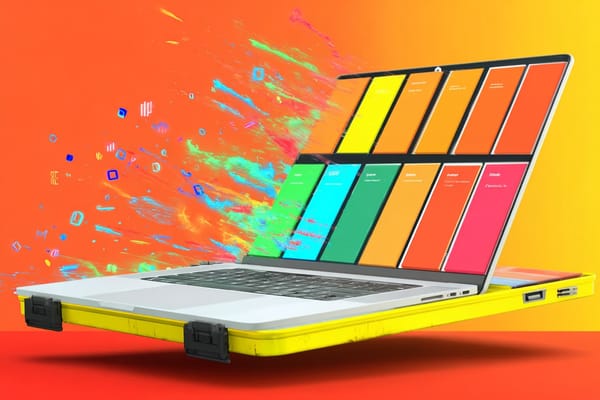Let Your Hobbies Enhance Your Career
Our personal lives and work lives are intertwined — so embrace it.

I saw a video recently with one of the worst interview tips I’ve ever heard.
A “career coach” (yes, the quotes are intentional) said that job seekers should not talk about their hobbies during an interview. She admonished that talking about hobbies would lead the hiring manager to think that the interviewee isn’t serious about work or is lazy.
Clearly, this person is out of touch with a modern workforce.
More than ever, companies are looking for well-rounded employees who have a variety of skills — not just the hard skills required of the job but the ability to think creatively, embrace new ideas, and adapt to ever-changing environments. Hobbies can build some of these skills in a way that your work experience alone may not.
But letting your hobbies complement your career is about more than saying, “I go running every morning” or “I like to read.” It’s about finding the connections between your hobbies and the skills you’ve gained as a result.
Learn to Connect the Dots in an Interview
We don’t leave our hobbies at the physical or virtual office door: they are part of who we are as humans. You’ll be most fulfilled by a job that embraces your whole self, including your joys and your passions.
And yes, as the aforementioned “career coach” points out, this will likely come up during an interview. Interviews are a chance for a potential employer to get to know you (and vice versa). You should absolutely talk about your hobbies — and do it in a way that enhances your profile as a candidate.
It might be tempting to brush over the topic so that you can focus more on the meatier questions, like your prior work experience. But instead, think of hobbies as part of the experience you bring to the table.
- Instead of saying, “I’m a runner,” talk about how you train, why you enjoy running, or any running accomplishments you have.
- Instead of saying, “I like to read,” talk about a recent book you’ve read, what you learned, and why you like different genres.
- Instead of saying, “I play video games,” talk about the problem-solving skills needed, any online communities you’re in, and why you like a particular game.
By giving some additional context to your hobby, you’re helping the hiring manager understand what you gain from your hobbies and how those skills could be applied to the job.
Set Aside Time to Nurture Your Hobbies
Of course, it’s one thing to say that you have hobbies during an interview. It’s another thing to make time for your hobbies — especially when you’re starting a new job.
I enjoy the time spent on my hobbies so much that I’m very resistant to anything that threatens to interfere. I block off time for my hobbies each week and fiercely guard that time.
Writing is one of my hobbies. Every morning, I wake up at 5:00 a.m. and spend time writing, enjoying the quiet before my family wakes up. My morning routine also includes reading a bit of poetry.
A few years ago, I picked up watercolor painting. I am still learning, but I set aside time on the weekends to paint. I usually involve my kids and we watch tutorials on YouTube and paint along.
Because my hobbies are built into my day, it helps with my overall work-life balance. I’m not tempted to catch up on work at 5:00 a.m. because I get so much satisfaction from that time spent with my hobbies.
By dedicating the time, I’m also engaging in continuous learning. I’m sharpening my writing skills, broadening my horizons by reading new poets and pushing myself outside of my comfort zone with painting.

Let Your Hobbies Inform Your Work
Hobbies are about exploration. If they become too mundane, they’re no longer hobbies; they’re time-fillers. What separates a hobby from “bingeing Netflix” is your participation: you have to involve yourself in the hobby, whether it is creating, collecting, tinkering, or exercising.
Work is also about exploration. Very few industries are stagnant and require us to respond to change constantly. You’ll want to go beyond connecting your hobbies to skills in an interview and truly let your hobbies guide some of your thought processes.
When I decided to learn to paint, I chose watercolors. Unlike many other types of painting, watercolors require me to give up control. Sometimes they’re messy. Sometimes the paint blends together in unexpected ways. Watercolor painting can sometimes be frustrating, but I’ve learned to take a “c’est la vie” approach. I’ve also learned that if something in my painting doesn’t go as planned, I can rework it and turn it into something new.
Over the years, I’ve become more relaxed in my career. Less rigid in how I approach projects. Do I attribute all of that to watercolor painting? No. But it has certainly helped shape my approach.
Having hobbies can also supplement your career in other ways. Careers are no longer linear: your hobbies may lead to new connections, pursuing new roles, or even turn into a side hustle. The creator economy has been a rocketship, with many people turning their hobbies into full-time endeavors (if that’s their passion).
By sharing the hobby side of your life with others, you never know what doors may open.
Focus on Hobbies That Make You Happy
Should you pursue hobbies based on how they can advance your career? Absolutely not. The whole point of hobbies is that they make you happy. Otherwise, they’ll feel like chores.
Instead, look at your current hobbies and consider the experience and perspective you’ve gained as a result. Think about how your hobby can lead to personal growth… and how that personal growth is tied to career growth.
The future of work and the modern workforce is about diverse experiences. Those employees are best equipped to compete against those who are laser-focused on a specific skill. Hobbies give you that additional breadth of perspective.
By devoting time to your hobbies in the same way that you would any other skill, you’re better preparing yourself for anything your career may throw in your direction. Your skills — including your hobbies — are the foundation.
Check out my free eBook: 17 Smart Tools Solopreneurs Need to Start, Grow, & Scale.






